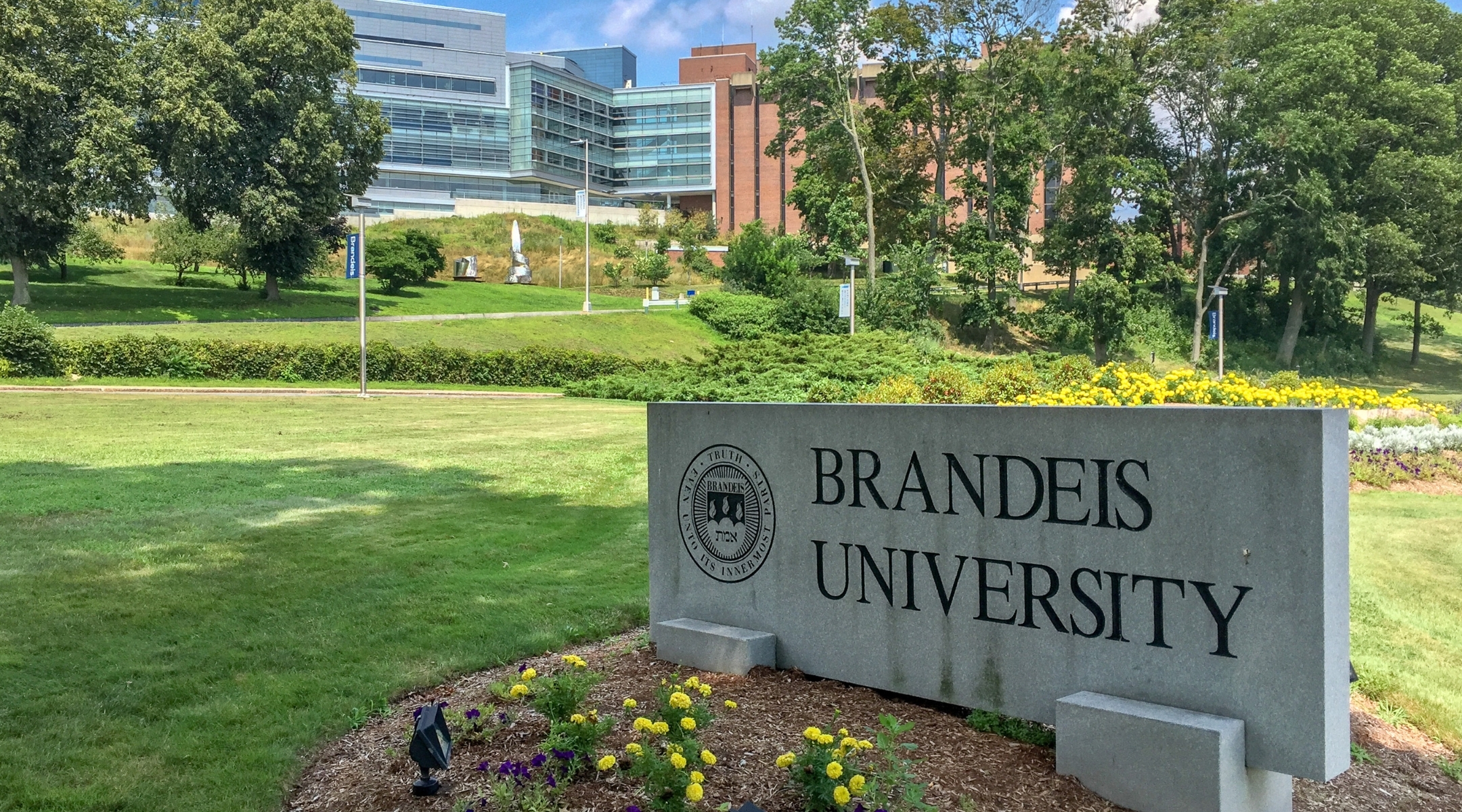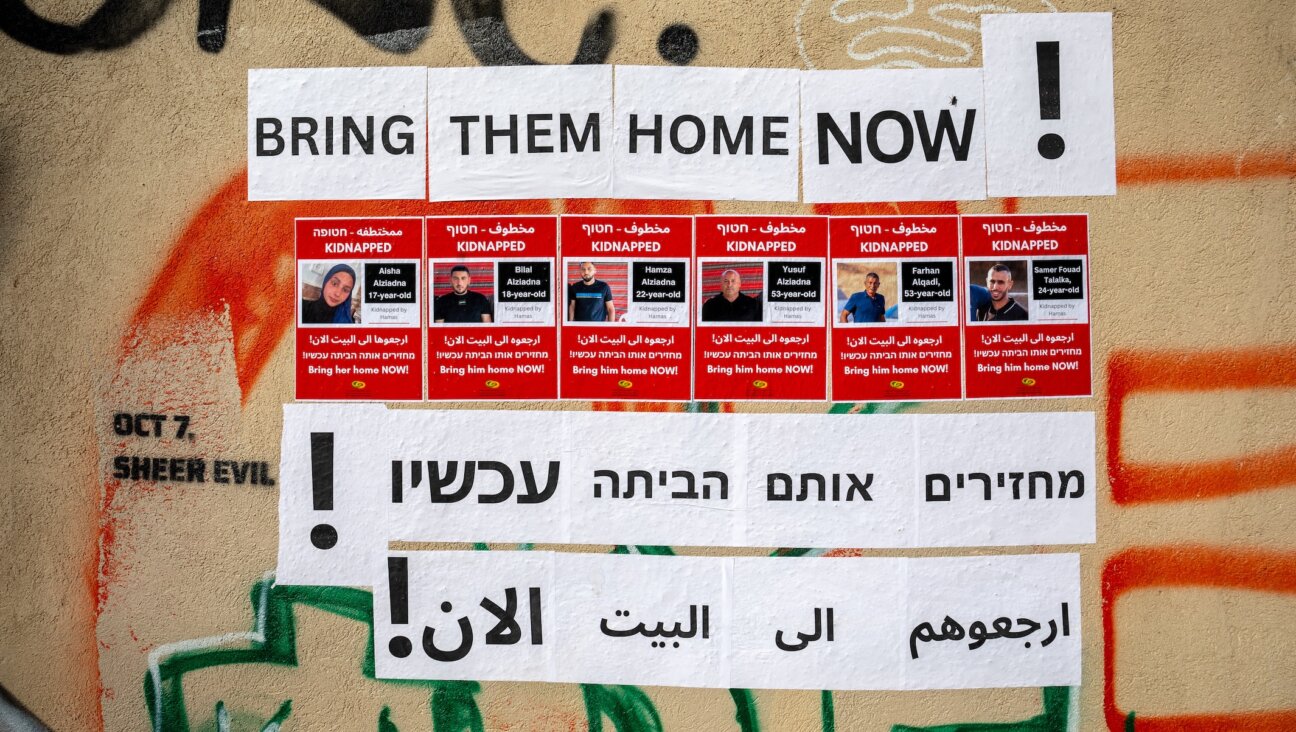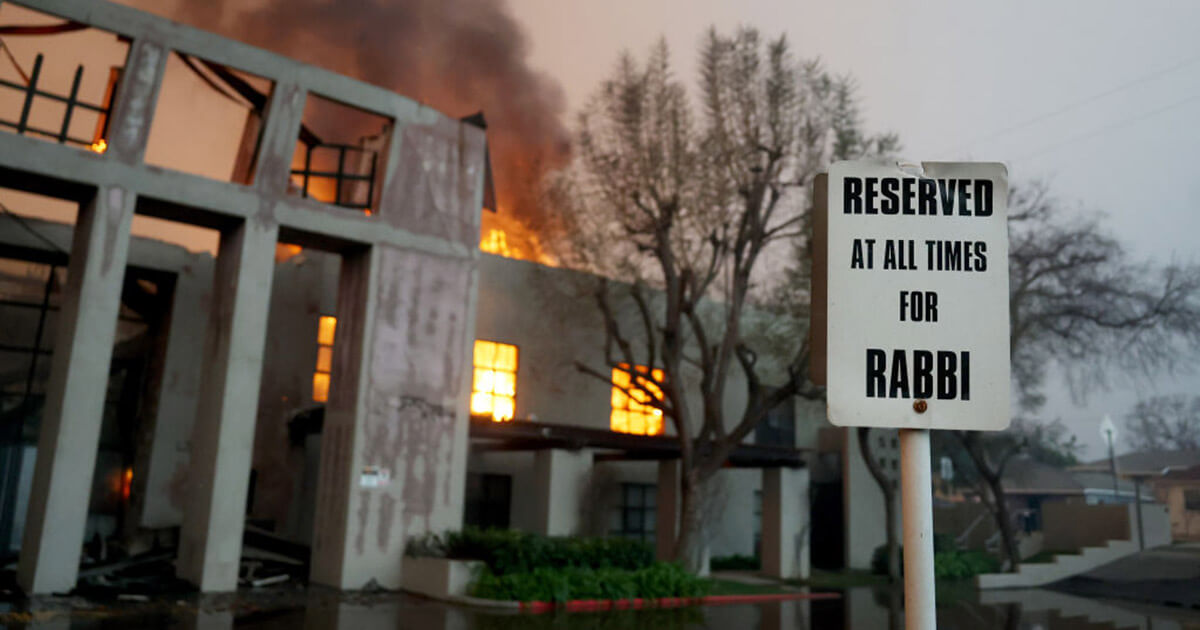Brandeis U revokes recognition of campus chapter of Students for Justice in Palestine
The chapter had been planning a vigil for Monday evening that has since been canceled

A sign on the Brandeis University campus with the school’s emblem and motto reads, “Truth even unto its innermost parts.” (Wikimedia)
(JTA) — Brandeis University is revoking recognition of the campus chapter of Students for Justice in Palestine, saying the group “openly supports Hamas.”
Brandeis informed the student group on Monday about its decision, which means that the group will no longer receive university funding or be able to hold activities on campus. The group canceled a “Vigil for Palestine” that had been scheduled for Monday night as a result.
“This decision was not made lightly, as Brandeis is dedicated to upholding free speech principles,” the university wrote in its letter, which the Jewish Telegraphic Agency obtained.
SJP, which has a national umbrella group and campus chapters across the country, has spoken out in support of Hamas’ invasion of Israel. Brandeis said support for Hamas, which the United States has designated as a foreign terror group, is not protected by the university’s free speech principles.
“Students who choose to engage in conduct in support of Hamas, or engage in conduct that harasses or threatens violence, whether individually or through organized activity, will be considered to be in violation of the University’s student code of conduct,” the letter says. “Students who wish to express their support for the rights of Palestinian civilians may form another student organization, through established procedures, that complies with University policies.”
The decision follows controversy at the university after its student senate voted down a resolution condemning Hamas — a move that others in the university community soundly rejected, including through an open letter that garnered more than 1,000 signatures in one day. The episode attracted national attention, in part because of Brandeis’ history as a non-sectarian school founded by the American Jewish community in the wake of the Holocaust.
It also follows pressure by Jewish groups for universities to withdraw funding for SJP in the wake of Hamas’ Oct. 7 attack on Israel, when the group described the attack as “a historic win for Palestinian resistance.” Florida’s public university system banned SJP last month at the direction of Gov. Ron DeSantis.
The Brandeis chapter of SJP called the university’s decision “racist” in a statement posted on Instagram.
“With heavy hearts, we would like to announce that our chapter of Students for Justice in Palestine has been unjustly de-charted,” the group wrote. “This comes as a part of Brandeis University, an institution that values social justice, trying to silence us from speaking our truth.”
On Sunday, Rabbi Seth Winberg, the executive director of Brandeis Hillel, had sent a letter to students referencing the planned vigil and “the feelings, anxieties and fears it may stir with many students.”
Winberg encouraged students not to “give SJP oxygen,” which he wrote would “just raise their visibility and coverage. Counter-protesting only brings attention to their cause and rhetoric.”
Winberg also pointed to an event hosted by Hillel on Monday that would highlight Brandeis’ ties to Israel.
Winberg, Hillel president Eitan Marks and the campus chapter of SJP all did not immediately return JTA’s requests for additional comment.
On Monday, Brandeis president Ron Liebowitz published an op-ed in The Boston Globe calling on other universities to combat antisemitism on their campuses. Liebowitz also hinted that the university’s decision concerning SJP might be coming.
Referring to groups that advocate for “violence against Jews or the annihilation of the state of Israel,” Liebowitz wrote, “Student organizations that do engage in such practices should lose all privileges associated with affiliation at their schools. In no way does this violate higher education’s deep and enduring commitment to free speech.”
This article originally appeared on JTA.org.





















